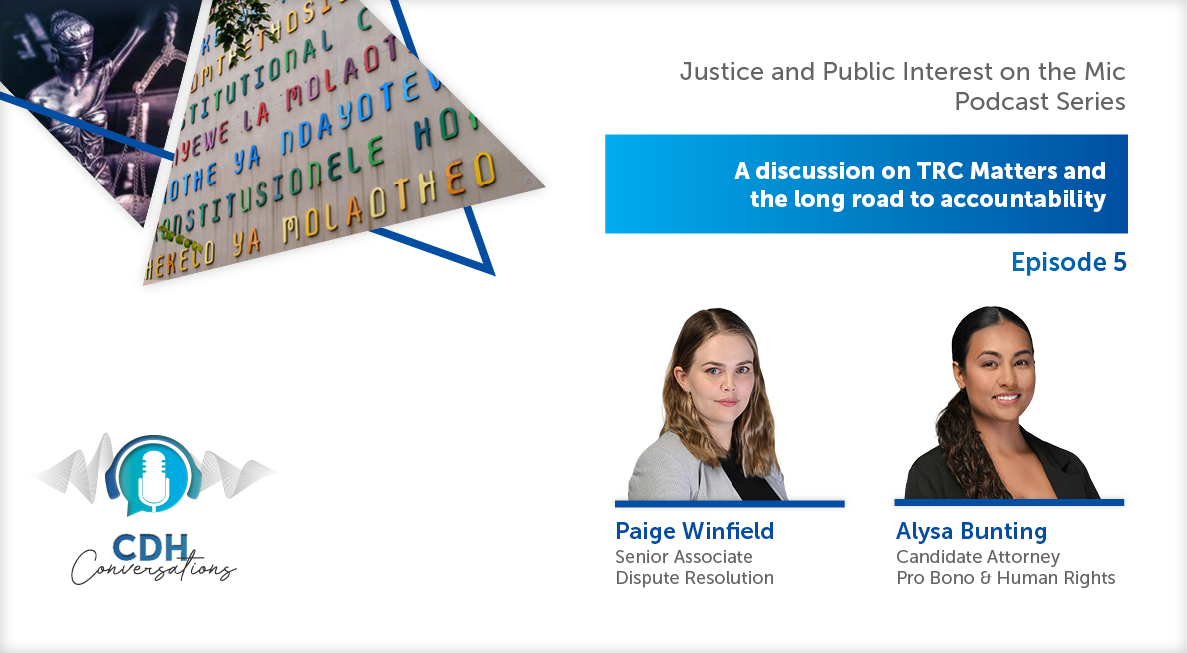Undocumented children and their right to basic education: ‘Once you learn to read you will forever be free’ - Frederick Douglass
On 17 September 2019, the full bench of the Grahamstown High Court was passionately addressed by counsel for the applicants and a number of amici in the matter of Centre for Child Law, the School Governing Body of Phakamisa High School & 37 Children // Minister of Basic Education & 4 others (Phakamisa) on the importance of the right to basic education for all and how children cannot be punished by being excluded from school due to a lack of documentation.
Two applications were argued before the court. The first was brought by the Centre for Child Law and Another (the main application). The second application was brought by the 37 children, on behalf not only of themselves, but on behalf of all similarly affected children in South Africa. Section 27 and the South African Human Rights Commission (SAHRC/Commission) were admitted as amicus curiae in the matter and were both provided with an opportunity to make oral submissions at the hearing.
CDH’s Pro Bono & Human Rights Practice, along with Advocates Kate Hofmeyr and Nandi Makhaye, represented the Commission in the proceedings and made submissions on the proper interpretation of s39(1) and s42 of the Immigration Act. Section 39 prohibits “learning institutions” from providing training or instruction to illegal foreigners, while s42 makes it an offence to “aid and abet” or assist an illegal foreigner to obtain instruction or training contrary to s39.
Advocate Hofmeyr demonstrated to the Court that if interpreted correctly, the Immigration Act in fact did not prohibit the provision of basic education to children who were illegally present in the country and she invited the Court to provide clarity on the proper interpretation of these sections so that they may no longer be used to justify withholding an education from undocumented children.
The main application focussed on a decision of the Eastern Cape Department of Education (communicated by way of a circular on 17 March 2016) to effectively withdraw funding to schools for undocumented learners on 17 March 2016. The applicants sough amongst other things to have this decision reviewed and set aside. Settlement was however reached in respect of this aspect of the main application as the hearing commenced on the morning of 17 September 2019.
The relief sought by the 37 children (the second application) remained contested despite the Department of Basic Education (DBE) and the Department of Home Affairs’ (DHA) best efforts to convince the Court that the issues before it were now moot. The second application was primarily concerned with the DBE’s Admission Policy for Ordinary Public Schools of 1998 (1998 Admission Policy), which requires that a parent must provide a birth certificate for the child concerned when applying for admission of their child to a public school. If the parent is unable to produce a birth certificate then the child may be admitted conditionally until a copy of the certificate is obtained from the DHA. However, after three months if the relevant documentation has not been produced the child faces potential exclusion from school.
The DBE was of the view that the issues were moot as it had allegedly placed the 37 children in various schools, and it had started the process of amending its 1998 Admission Policy. It had also in the meantime issued a circular in order to cater for the position of undocumented learners while the revised Admission Policy was being finalised. The circular provides for a final extended period of not more than 12 months within which a parent must submit the requisite documentation to the school in comparison to the abovementioned three-month period.
Counsel for the 37 children however correctly highlighted that the future of undocumented children remained unclear after the revised 12-month period had lapsed and that children would still ultimately be excluded from schools if they were unable to provide the necessary documentation. He also reminded the court that the 1998 Admission Policy was still in force and therefore urged the court to declare s15 and s21 of the Policy invalid. Counsel further urged the court to declare s39(1) and s42 of the Immigration Act invalid, in the event that the court did not agree with the SAHRC’s above interpretation of same. Judgment in the matter was reserved.
The reality is that many deeply vulnerable children in South Africa (the majority of whom, are born to South African parents) face impossible barriers in obtaining birth certificates or other forms of identification because of various systemic issues with the effect that many schools have been refusing/denying undocumented minors’ access to school. Ultimately, the outcome of this hearing will have a profound impact on the lives of many of the most vulnerable children in our country and we hope that the Court will take heed to the plight of undocumented children across South Africa.
The information and material published on this website is provided for general purposes only and does not constitute legal advice. We make every effort to ensure that the content is updated regularly and to offer the most current and accurate information. Please consult one of our lawyers on any specific legal problem or matter. We accept no responsibility for any loss or damage, whether direct or consequential, which may arise from reliance on the information contained in these pages. Please refer to our full terms and conditions. Copyright © 2026 Cliffe Dekker Hofmeyr. All rights reserved. For permission to reproduce an article or publication, please contact us cliffedekkerhofmeyr@cdhlegal.com.
Subscribe
We support our clients’ strategic and operational needs by offering innovative, integrated and high quality thought leadership. To stay up to date on the latest legal developments that may potentially impact your business, subscribe to our alerts, seminar and webinar invitations.
Subscribe




